National Day of Commemoration ceremonies have been held at several locations across the country.
The events honour all Irish men and Irish women who died in wars or on service with the United Nations and other international organisations in the service of peace.
A National Day of Commemoration interfaith ceremony took place at Dublin's Royal Hospital Kilmainham.
The main ceremony returned to Dublin after being in held in Co Cork for the first time last year.
It was attended by President Michael D Higgins, Taoiseach Simon Harris and other members of the Government and Council of State.
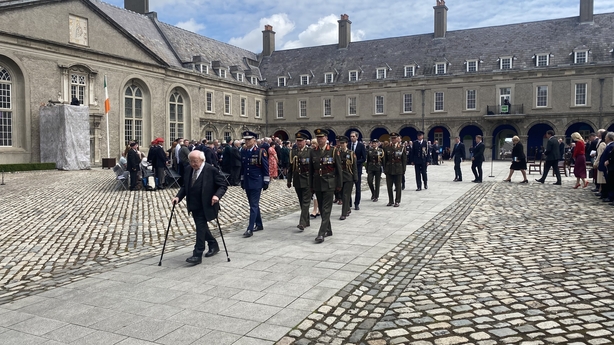
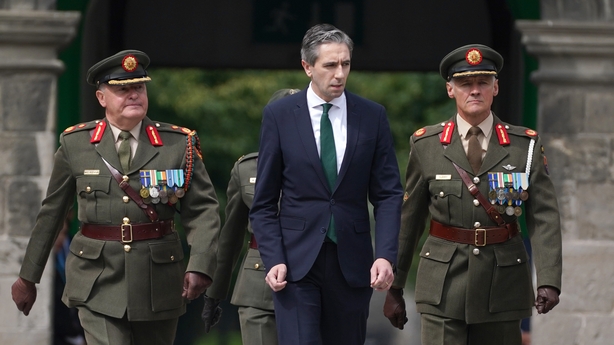
They were joined by members of the Diplomatic Corps, Defence Forces, veterans' organisations, the judiciary and Northern Ireland representatives.
Relatives of those who died in past wars or on UN service alongside relatives of the 1916 leaders were also invited.
The ceremony included a wreath-laying by President Higgins on behalf of the people of Ireland and a fly-past by the Air Corps.
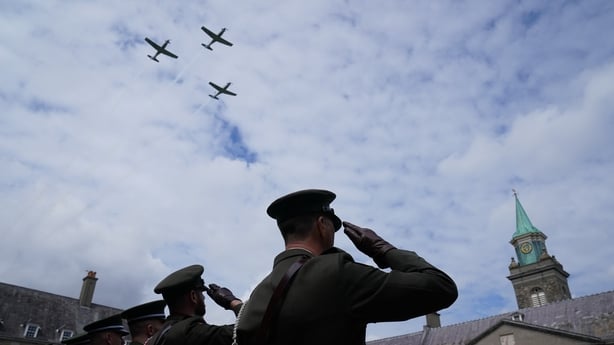
Ceremonies were also held at six other locations around the country, including Fitzgerald's Park in Cork city, the University of Galway, Kilkenny Castle, on the grounds of Limerick City and County Council, at the John Condon Memorial in Waterford city and at Sligo City Hall.
Emphasis on peace and shared humanity
There was an emphasis on peace and our shared humanity during the interfaith ceremony at the Royal Hospital in Kilmainham.
Chief Rabbi Yoni Wieder urged people to "strive for a world where time and talent, strength and intellect, can be spent in fighting disease, defeating poverty, and defending the downtrodden without having to take up arms."
"May we have the insight to recognise that which unites us all," he said "and move towards an era of great peace for the whole world."
Imam Sheikh Hussein Halawa of the Islamic Cultural Centre also spoke of peace when he prayed "our Lord! You are the Peace. Let your piece prevail over the globe."
The "grace of constructive dialogue" and "grace of open ears... as we work towards peace with justice in the world" were included in Catholic Reverend Bishop Paul Dempsey's prayers of the faithful.
Peace was once again a recurring theme in Dr Hemant Kumar's Hindu prayer, while Reverend Andrew Dougherty of the Methodist Church in Ireland spoke of "how easy it is to speak of peace and how difficult it is to pursue it; how straightforward it sounds to talk of breaking down barriers and yet how demanding it is to live as peacemakers."
Buddist Reverend Jay Hodo Roche prayed that people should "strive at first to meditate upon the sameness of yourself and others."
"In joy and in sorrow all are equal," he said.
While Jillian Brennan of the Humanist Association of Ireland spoke of "our greatest strength" lying "in our shared humanity."
"Let us honour the past by building a future worthy of the sacrifices made, a future where peace and justice are not just ideals but lived realities."
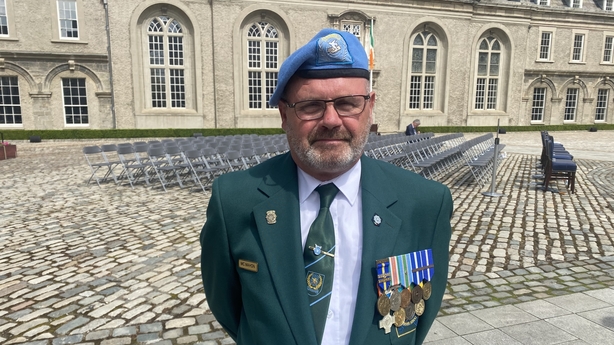
Among those attending the ceremony was Ray McMahon of the Irish United Nations Veterans Association.
Mr McMahon said his first tour as a UN peacekeeper was in Lebanon in 1989 when he was 20 years old.
"It was a sad first trip too because we had four members of our battalion who were killed on that mission, and they will never be forgotten."
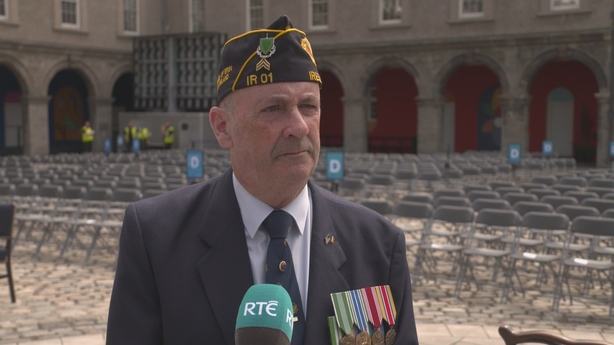
"To be forgotten is to die twice, so its very important that we remember the sacrifice," Vincent Hourican of the American Legion told RTÉ News.
Mr Hourican said he was a veteran of the Irish Defence Forces and the US Army, and also had a career in An Garda Síochána.
"Irish men have been in conflicts all over the world in several different armies," Mr Hourican said, "we remember all of those veterans, because its very important to remember their sacrifice, they were away from their families and some of them never returned."






